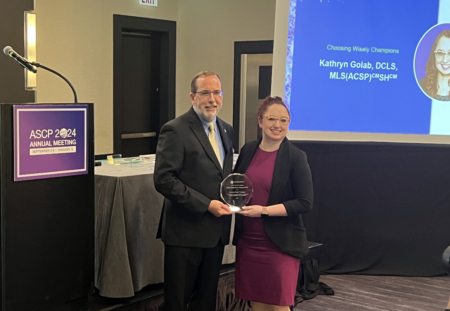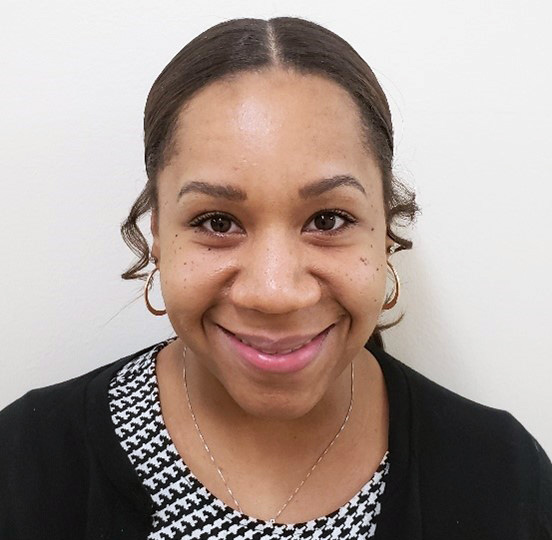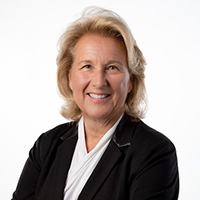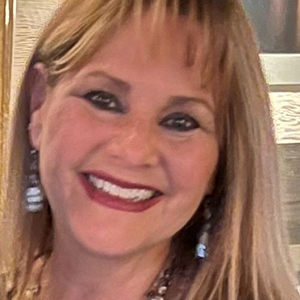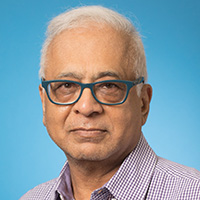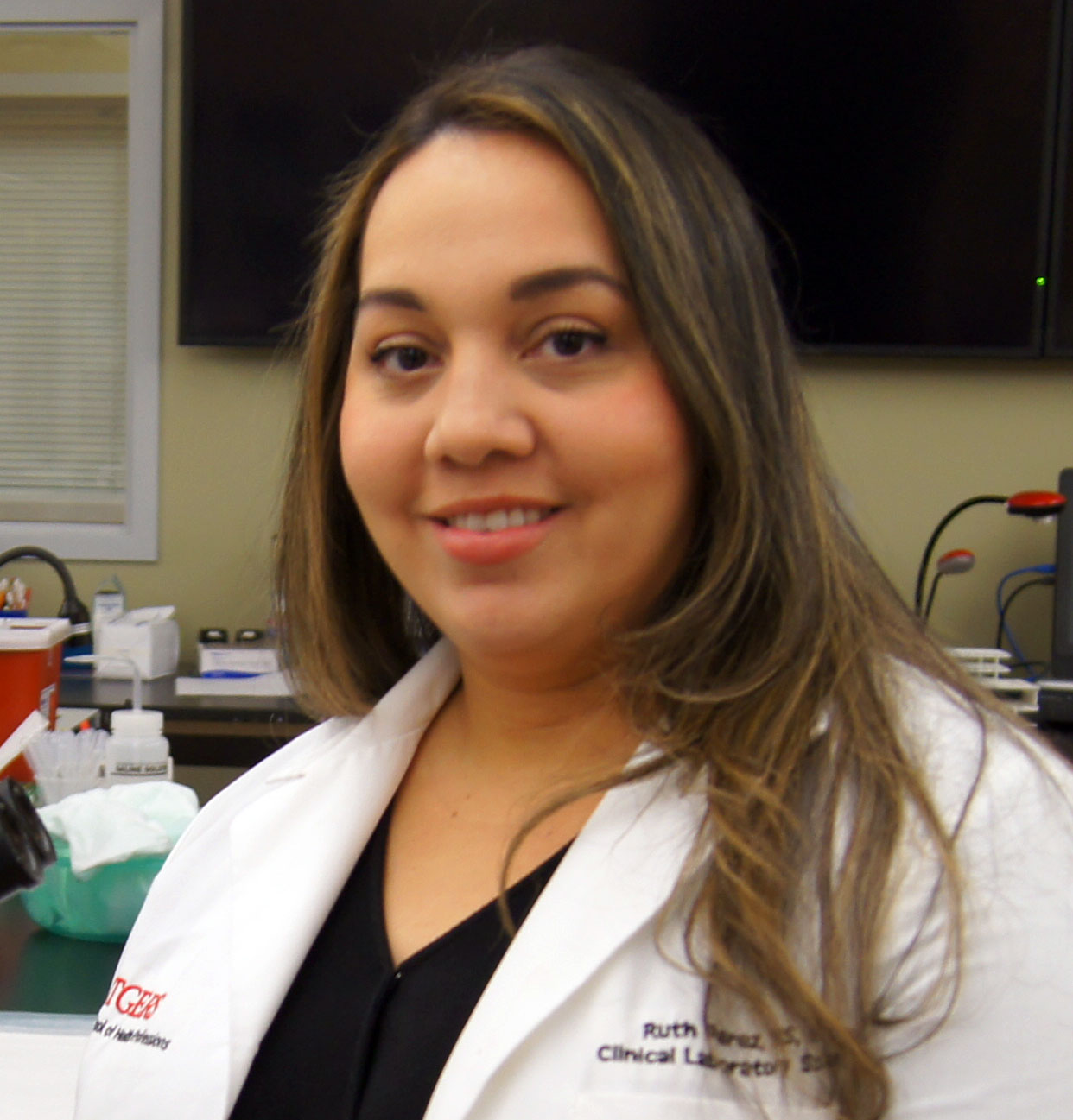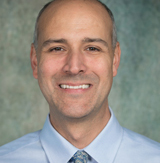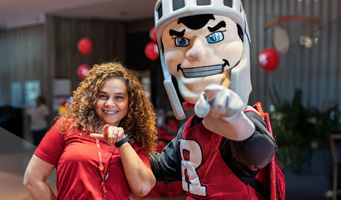Why Study Clinical Laboratory Science at SHP?
Our graduates are prepared to be effective leaders in many facets of the clinical laboratory science profession, particularly in advanced practice roles promoting quality health care through appropriate and cost-effective utilization of clinical laboratory services. Our program instills an appreciation for advanced clinical practice and research.
$135,000
average salary of a DCLS graduate.
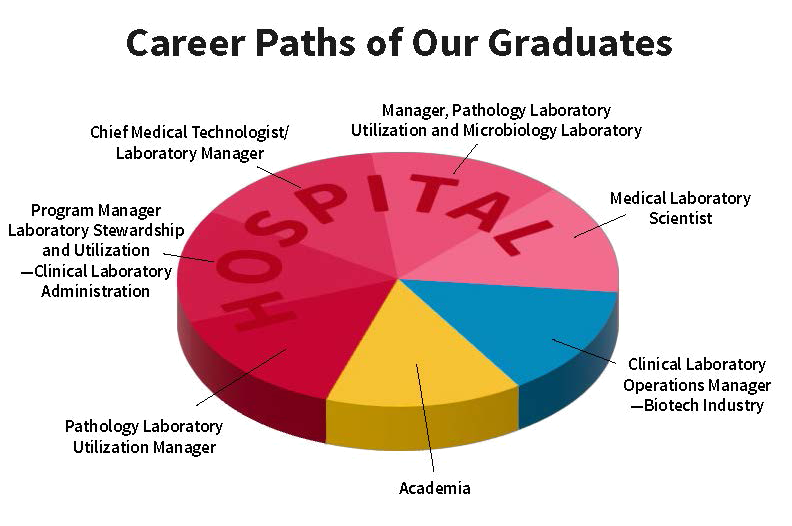
Program Highlights
Rutgers Doctor of Clinical Laboratory Science (DCLS) is an advanced practice doctoral degree for certified Medical Laboratory Scientists and was the first Advanced Practice Doctorate program in the U.S.
This new healthcare model brings advanced practice medical laboratory scientists into front-line roles on healthcare teams with physicians, pharmacists, nurses, and other health care professionals.
Our program prepares certified MLS to be advanced practice health care practitioners dedicated to increasing the value of diagnostics through consultation as members of interprofessional healthcare teams and conduct research focused on evidence of the impact of diagnostics on clinical and healthcare outcomes.

Beyond the Classroom
We work with students to try and identify a site in their geographical area that is amenable to collaborate as an affiliate with Rutgers to provide the DCLS clinical practice residency experience. A formal affiliation agreement with the site must be established.
We cannot guarantee a site can be found in a specific geographical area and travel or relocation for the clinical practice residency year may be required and may incur additional expense to the student.
DCLS Clinical Education Affiliates
Advent Health, Florida
Barnes-Jewish Hospital, Mo.
Bellin Memorial Hospital Inc., Wis.
Foundation Health Partners, Alaska
Froedtert Memorial Health, Inc/ Medical College of Wisconsin Milwaukee, Wis.
Hackensack Meridian Health, Inc. NJ
Iowa City VA Health Care System, Iowa City, Iowa
Northwestern Memorial Healthcare Chicago, IL.
NYU Langone Health, NY
Prime Healthcare Services -Lake Huron Medical Center, Mich.
Robert Wood Johnson University Hospital- New Brunswick, N.J.
The New York and Presbyterian Hospital, N.Y.
University Hospital, Newark, N.J.
University of Maryland Medical Center, Baltimore, Md.
Valley Hospital, N.J.
Wellstar Health System Inc., Ga.
We have clinical education affiliate sites in several states and continue to seek additional sites. However, we cannot guarantee a site can be found in a specific geographical area and travel or relocation for the clinical practice year may be required and may incur additional expense to the student.
Program Overview
The value and contribution of DCLS include:
- Experts in clinical laboratory testing
- Collaborate with clinical pathology to serve as consultants in clinical rounding, patient care and providing information to improve clinical diagnosis.
- Consult with clinicians and the interprofessional team regarding lab test ordering and interpretation.
- Consult with patients on understanding lab tests.
- Develop patient-centered test algorithms, reflex testing.
- Participate in inter-professional healthcare team conferences and patient care rounds.
- Conduct outcomes studies that benefit patients, patient safety, and the institution.
- Promoters of quality health care through appropriate and cost-effective utilization of clinical laboratory services, and advocates of patient safety by contributing to the reduction of medical errors
Doctor of Clinical Laboratory Science students complete a one-year advanced clinical practice residency at an affiliate clinical site. The clinical practice residency education experience is supplemented by weekly virtual webinars with the DCLS cohort and individual advisement sessions. Students complete a practice-based outcomes research project.
Rutgers Health Statement on Professionalism in the Workplace
SHP Doctorate in Clinical Laboratory Science Program Mission Statement
Advance peoples’ health and the medical laboratory science workforce through excellent education, innovative research, scholarship, service, and contribute to quality healthcare to individuals and communities.
SHP Doctorate in Clinical Laboratory Science Program Goals
The goals of the Doctorate in Clinical Laboratory Science Program are to prepare caring, collaborative, and competent doctoral educated advanced practitioners in clinical laboratory science dedicated to increasing patient safety and the value of clinical laboratory services through consulting, collaborating on the interprofessional teams, optimizing test utilization and diagnostic processes, and conducting and applying evidence-based translational research.
DCLS education is implemented through competencies required for evidence-based clinical decision-making and clinical services improvement assessed by measurement of clinical laboratory science (CLS) outcomes.
Upon completion of the program, graduates will be prepared to:
- Provide patient-centered, customized consultation services on appropriate test selection and interpretation for the purpose of clinical decision-making among the interprofessional healthcare team and for the patient.*
- Monitor laboratory data, test utilization, and diagnostic testing processes for individual patients and populations using informatics and analytics to reduce diagnostic errors, improve efficiency, and reduce costs.*
- Conduct research and apply evidence to demonstrate clinical utility of laboratory tests and algorithms and to improve the quality, efficiency, and safety of the overall diagnostic testing process.*
- Educate health care providers, patients, their families, and the general public on the indications, best evidence, patient preparation, and interpretation of clinical laboratory testing, including home self-testing.*
- Direct laboratory operations at all levels of complexity to comply with all state and federal laws and regulations, as well as guidelines determined by professional boards of licensure, and certification/accreditation agencies.*
- Participate in public and private health policy decision-making at all organization and government levels using best evidence.*
- Demonstrate exemplary professional and ethical behaviors in practice, education, and scholarly activities.
- Abide by and promote the Clinical Laboratory Science Profession Code of Ethics.
- Demonstrate a commitment to patients and promote and protect patient and human subjects’ rights.
- Demonstrate a commitment to the profession through leadership and active participation in professional organizations.
- Contribute to new knowledge in the field through research and dissemination of findings.
- Become life-long learners using self-assessment and continuing education to advance one’s own knowledge and skills*.
* Modified from the ASCLS Position Paper on Advanced Practice: Doctorate in Clinical Laboratory Science, adopted by ASCLS House of Delegates in August 2016, and revised in July 2024. These outcomes also meet the Institute of Medicine’s core competencies for health care professionals, namely, the ability to provide patient-centered care, work in interdisciplinary teams, employ evidence-based practice, apply quality improvement, and utilize informatics. (Institute of Medicine. Health Professions Education: A Bridge to Quality. Washington, DC, National Academies Press, 2003).
| YEAR | Graduation Rate | Job Placement | Board Certification Pass Rate ** |
|---|---|---|---|
| 2018 | 100% | 100% | N/A |
| 2020 | 100% | 100% | N/A |
| 2021 | 100% | 100% | N/A |
| 2022 | N/A | N/A | N/A |
| 2023 | 100% | 100% | N/A |
| 2024 | 75% | 100% | N/A |
*Data as of August 2024; updated annually in August
** ASCP-BOC is in the process of developing a DCLS Board Certification Exam
Technical Standards were developed to assist each student in evaluating their capabilities and chances for success in a particular program.
https://shp.rutgers.edu/admissions/rbhs-technical-standards/
In order for students to accurately evaluate their capabilities the DCLS program specific Technical Standards indicate what is required to do well in the DCLS program, and the skills/functions required to be successful in the program and as a DCLS allied health professional.
DCLS Program Standards
The following standards pertain to particular cognitive, motor, behavioral and social skills that are associated with the educational process and practice for the Doctor in Clinical Laboratory Science (DCLS). Students are required to meet the following abilities and expectation.
Observational Standards
- Read, comprehend and synthesize a large body of knowledge from a variety of sources, including but not limited to lectures, book, articles, videos, podcast, handouts, and demonstrations.
- Recall, interpret, extrapolate and apply information from a variety of relevant sources, including but not limited to readings, lectures, discussion, observations, and evaluation.
- Review existing data in the ElectronicHealth Record (EMR) and Electronic Medical Record (EMR), collect additional data, recommend obtaining data, and utilize/analyze/ synthesize the data needed to conduct an evaluation of the status of patients.
Communication Standards
- Read, write and understand English (both written and oral).
- Read, comprehend, synthesize, and apply information from a variety of sources including scientific publications, lectures, discussion, observations, videos, podcasts, handouts, the contents of patient charts, clinical notes, diagnostic tests, graphic images, lab reports and other relevant diagnostic and treatment information accurately and efficiently.
- Recognize and relay appropriate verbal, non-verbal, and written communication between self and clinicians, interprofessional healthcare providers, patients, peers, faculty and others.
- Produce complete, accurate, thorough documents in a timely manner, consistent with didactic and clinical requirements.
- Master use of computer and internet and other electronic sources as communication tools i.e. EHR/EMR, Laboratory Information System (LIS) statistical analysis software.
- Produce educational materials, reports and assignments to be presented in a professional style and created to the level of the learner/group/audience.
- Adhere to program, department, clinical and professional publication standards.
- Demonstrate culturally competent socially appropriate empathetic interactions with all, regardless of any personal characteristic or trait, including but not limited to an individual’s age, gender, sexual orientation, race, ethnicity, social-economic status, religion, life-style and/or culture or background.
- Demonstrate effective management skills, including planning, organizing, supervising, and working effectively as a member of a team.
- Expanded consultation skills through interaction with healthcare providers and participation in interprofessional patient-care conferences
Intellectual/Conceptual Standards
- Utilize the application of scientific principles and evidence-based practice in laboratory diagnostic services utilizations to assist in attainment of optimal healthcare delivery to the patient.
- Formulate and recommend algorithms and plans related to clinical laboratory testing and services based upon current scientific rationale, evidence-based practice guidelines and standards of practice/care.
- Monitor laboratory data, test utilization, and diagnostic testing processes in individual patients and populations using informatics and analytics to reduce diagnostic errors, improve efficiency, and reduce costs.
- Maintain confidentiality and uphold the ethical and legal standards of the profession.
- Effectively participate in the didactic, behavioral and clinical portions of academic education.
- Organize, analyze, synthesize and critically appraise information from a variety of sources to determine validity and applicability to practice.
- Demonstrate critical thinking and problem solving, related to self and others to ensure safe and effective practice.
- Possess the self-directness and motivation to independently work on and complete all academic and professional work assignments, including long and/or complicated projects.
- Adhere to the highest standards in conducting research.
- Demonstrate ability and insight to accurately self-assess and reflect on intellectual and conceptual abilities.
Motor Skill Standards
- Master the use of electronic devices required to perform in the classroom and clinical setting.
- Demonstrate sufficient physical and mental health, strength and endurance over the course of the program to participate in didactic and clinical activities.
- Demonstrate prevention techniques such as proper hand washing, use of protective devices and equipment/clothing, to minimize exposing oneself and others to pathogens.
Behavioral and Social Standards
- Maintain patient confidentiality and develop and exhibit professional ethical demeanor.
- Function safely, effectively, efficiently, calmly with emotional stability necessary when dealing with the stresses of an intensive training program in preparation for clinical situations including, but not limited to, academic schedule, clinical practice residency, managing multiple tasks simultaneously and efficiently, and meeting multiple deadlines
- Demonstrate caring and compassion to all patient, clients, families, other caregivers and health care team members.
- Demonstrate behavior which is socially and professionally responsible.
- Respect cultural, ethnic, religious, and social beliefs and preferences in clinical decision making.
- Demonstrate respect, appreciate and engage in non-judgmental interactions regardless of any personal characteristic or trait, including but not limited to an individual’s age, gender, sexual orientation, race, ethnicity, social-economic status, religion, life-style and/or culture or background.
- Accept responsibility for own actions and correct as necessary.
- Maintain appropriate personal hygiene and dress consistent with personal contact associated with patient care and professional interactions.
- Takes responsibility for all assignments, obligations and actions within the academic and clinical environment.
- Accept constructive feedback and respond with appropriate actions.
- Provide appropriate constructive feedback.
Students in the DCLS program must meet the health and immunization requirements for Category 1 https://www.rutgers.edu/sites/default/files/C1_RBHS_Imm_Packet_8.2024.pdf and a Criminal Background Check is required https://shp.rutgers.edu/admissions/admissions-checklist/
Review items in Section A and Section B
Technology Resources
RBHS Student Tech Guide– recommendations, resources, discounted/free software, and more:
https://it.rutgers.edu/technology-guide/students/#rbhs
Rutgers Virtual Computer Lab: https://it.rutgers.edu/virtual-computer-labs/
Technology, Computer and Software Requirements
DCLS students are required to have appropriate technology and resources to engage in online and off-line education and program activities:
- Device with high-speed access to the internet
- Microsoft Office 365
- Statistical analysis software
- Downloading, uploading annotating files
- Using several browsers to access information and accessing online courses
- Courses offered in Canvas
- Documents, power point presentations, videos, external links to websites, articles
- Access PDF files and convert files to PDF format
- Online quizzes and exams
- Course online discussion forums – written postings
- Virtual sessions via Zoom that require audio and video participation:
- Virtual synchronous class webinars/discussions forums /program meetings
- 1-1 advisement sessions
- Rutgers ZOOM is available for all students
- Students are responsible for maintaining a backup of all work
- Recommended: Students have access to RU BOX a cloud-based file storage application with secure data storage, manage and transfer/share digital files with unlimited storage capabilities.
- Other options : OneDrive included with Office 365 or an external hard drive
Additional Expenses
Students may have additional expenses:
- Health Insurance (if you do not have your own policy/coverage)
- Cost for books, photocopying and other supplies based on individual course requirements
Accreditation
The Doctoral program, Doctor of Clinical Laboratory Science at Rutgers, the State University of New Jersey is a Candidate for Accreditation by the National Accrediting Agency for Clinical Laboratory Sciences (NAACLS), 5600 N. River Rd, Suite 720 Rosemont IL 60018-5119; 773.714.8880.
Candidacy is a “pre-accreditation” status with NAACLS, awarded to developing or emerging programs for a maximum period of 4 years.
Admission Criteria
The Rutgers Doctorate in Clinical Laboratory Science (DCLS) program is a competitive admission process. Admissions decisions are by the DCLS Admissions Committee. Only complete applications including all required documents submitted by the application due date will be reviewed.
Application Deadline is March 1st- application and all required documents.
Admission /Eligibility Requirements:
- Baccalaureate degree in Clinical/Medical Laboratory Science or related science (biology, microbiology, molecular biology, etc.) from a regionally accredited US institution or equivalent.
- Certification from the American Society for Clinical Pathology Board of Certification ASCP-BOC, as a generalist Medical Laboratory Scientists MLS(ASCP), or MLS(ASCP)I , or MT(ASCP) with proof of continuing education equivalent to BOC-CMP.
- Completion of a NAACLS-accredited MLS/MT program (or equivalent)
- Minimum overall GPA of 3.3; Science courses cumulative GPA of 3.2.
- Minimum three years’ full-time experience post-MLS certification, working as a medical laboratory scientist in a United States clinical laboratory.
- Preference will be given to applicants with work experience as a generalist or work experience in several clinical laboratory science areas as evaluated by the Admissions Committee.
DCLS applicant required materials:
- Official transcripts from all institutions attended- undergraduate and graduate coursework.
- Proof of current professional certification as a generalist Medical Laboratory Scientist MLS(ASCP)CM, MLS(ASCP)i , or equivalent or MT(ASCP) with proof of continuing education equivalent to ASCP-BOC-CMP.
- Proof of continuing certification maintenance: current ASCP-BOC CMP-CE transcript or official transcript of continuing education equivalent to ASCP-BOC-CMP such as ASCLS-PACE CE transcript
- Resume or Curriculum vitae (CV)
- Letter of intent addressing the reasons for pursuing the DCLS degree, research interests and short and long-term career goals for completing the DCLS program. (maximum 250 words)
- Degree from Non-US Institution: Applicants who have earned a degree from a non-US accredited institution must provide International transcript evaluation records (courses and grades) from the World Evaluation Services (only WES will be accepted ).
- English Proficiency Examination: TOEFL Exam achieving a minimum score of 550; or International English Language Testing System (IELTS) achieving a minimum score 6.5 .
Transfer Credit: This option is available after a student has been admitted to the program. Only courses that align to the DCLS specific program courses on the DCLS Requirements for Graduation (RG) will be considered for transfer credit. Course must be no more than 5 years old, a minimum grade of “B” must meet the standards of currency and rigor. A maximum of 6 credits may be earned via transfer credits. Evaluation is conducted by the Program Director and faculty. SHP Transfer Credit Policy https://apps.shp.rutgers.edu/projects/shrpweb-cf/policies/policy_view.cfm?view=P&coding=2.5
Degree from Non-US Institution: Applicants who have earned a degree from a non-US accredited institution must provide International transcript evaluation records (courses and grades) from World Evaluation Services (WES) and an English Proficiency Examination as follows: TOEFL, achieve a minimum score of 550 or higher or International English Language Testing System (IELTS) achieve 6.5 or higher.
International Applicants
Guidance for distance education: This program is entirely online except for the in-person (in the United States only) clinical component. Thus, if you are an international applicant interested in the DCLS program, please follow the Federal Department of Homeland Security guidance regarding online/distance programs.
https://studyinthestates.dhs.gov/students/study/full-course-of-study
Interview: The Admissions Committee carefully reviews each complete application submitted by the due date and the most competitive applicants are invited for an interview. Interviews are conducted virtually via Zoom.
Non-Discrimination Statement: The University does not discriminate on the basis of race/color, national origin/ancestry, ethnicity, religion, sex/gender, sexual orientation, gender identity or expression, age, disability, or marital status. The University recognizes the value of diversity and is committed to providing appropriate support to its student body.
Technical and Health /Immunization Requirements:
- DCLS engage in clinical, research and education activities and must comply with the RBHS-SHP technical standards https://shp.rutgers.edu/admissions/rbhs-technical-standards/
- Health and Immunization: Upon acceptance into the program DCLS students submit documentation and must be deemed compliant for all Category I Health and Immunization requirements prior to enrolling in courses for the first semester. Health records and immunizations must be current throughout enrollment in the program https://njms.rutgers.edu/departments/family_medicine/shs/immun_shrp.php
Drug Screen: Typically, all programs with a clinical component require drug testing. However, students only require drug testing if the clinical site requests it. Students will be informed regarding clinical site requirements before the start date of their clinical experience.
Criminal Background Check: A Criminal Background Check is required upon admission.
Tuition and Fees
For Tuition and Fees, refer to the SHP Graduate Tuition and Fees Table listing for “All Other Graduate Distance/Hybrid Programs“.
Tuition and fees are subject to change, as voted on annually by the Board of Governors.
International Applicants
Guidance for distance education: This program is entirely online except for the in-person (in the United States only) clinical component. Thus, if you are an international applicant interested in the DCLS program, please follow the Federal Department of Homeland Security guidance regarding online/distance programs.
https://studyinthestates.dhs.gov/students/study/full-course-of-study
Degree from Non-US Institution: Applicants who have earned a degree from a non-US accredited institution must provide International transcript evaluation records (courses and grades) from World Evaluation Services (WES) or Educational Credential Evaluators (ECE) and an English Proficiency Examination as follows: TOEFL, achieve a minimum score of 550 or higher or International English Language Testing System (IELTS) achieve 6.5 or higher.
Curriculum
Program Requirements and Course Descriptions
The DCLS program offers an innovative educational experience utilizing a blended pedagogy, distance (online) education, and clinical practice. The curriculum includes interdisciplinary theoretical courses and the clinical practice residency enhances the student’s experiences to interact with other healthcare professionals.
The DCLS curriculum focuses on four core areas: Advanced Clinical Laboratory Science, Professional, Research, and Clinical Practice/Residency. All pre-residency courses are offered online and some courses may be supplemented with live, interactive webinars.
80 Credits Post-baccalaureate Degree
Length of Program: PT: 5 yrs. FT: 4yrs.
Pre-Clinical Practice Residency Curriculum – designed to meet the needs of the practicing MLS professional pursuing an advanced degree and continues professional develop working as an MLS.
All pre-clinical practice residency courses are offered online and require a time commitment of 9-12 hours per week with online and off-line work.
- Part-Time: 6 credits/semester (2 courses/semester,18-24 hours a week)
- Full Time: 9 credits/semester = 3 courses/semester 27-36 hr. per week)
Consideration of time allocation and balance of work commitments, academic commitments, and personal life commitments is important in selecting a PT or FT course plan. A DCLS advisor is assigned to assist in assessing options.
Clinical Practice Residency Curriculum – The clinical practice/residency takes place at an affiliated accredited medical centers/hospital with a fully accredited clinical laboratory. We have affiliate clinical sites in several states and continue to seek clinical sites to affiliate with Rutgers. Upon acceptance into the program, we work with students to try and identify a site in their geographical area who are amenable to work with us to provide the DCLS Clinical Practice Residency experiences. This could be the hospital where they are employed, one that is part of their hospital system or other in their geographical area.
However, we cannot guarantee a site can be found in the geographical area, travel or relocation may be required and incur additional expense.
Clinical Practice Residency
- Full time (42 wks.) 3 semesters, Mon-Fri: Summer,12 wk., Fall, 15 wks., Spring 15 wks.
- At an affiliated clinical site
- On-site clinical practice residency based on Diagnostics Consultation Model (DCM© )
Academic Requirements: Student must maintain a “B” average (GPA 3.0). Students are expected to continually maintain matriculation while enrolled in the program.
Additional Resources
ASCLS Advanced Practice Doctorate in CLS Position Paper
https://ascls.org/advanced-practice-doctorate-in-clinical-laboratory-science/
ARUP: Doctor of Clinical Laboratory Science (DCLS): Contributing Quality and Value in Clinical Laboratory Services Delivery
https://arup.utah.edu/education/dcls-2019.php/
Clinical Practice Residency
The clinical practice/residency takes place at an affiliated accredited medical centers/hospital with a fully accredited clinical laboratory. We have affiliate clinical sites in several states NJ, NY, GA,MS, IA, MO, WI, MD, IL, and continue to seek clinical sites to affiliate with Rutgers. Upon acceptance into the program, we work with students to try and identify a site in their geographical area who are amenable to work with us to provide the DCLS Clinical Practice Residency experiences. This could be the hospital where they are employed, one that is part of their hospital system or other in their geographical area. However, we cannot guarantee a site can be found in the geographical area, travel and/or relocation may be required to complete the clinical practice residency year and incur additional expense.
The Clinical Practice Residency year is three consecutive semesters Summer (12 weeks), Fall (15 weeks), Spring (15 weeks). It is a full-time program requiring a minimum of 40 hours per week: typically an average of 20-25 hours per week at the affiliated clinical site plus an additional 20-25 hours per week for preparation for clinical activities and completion of assignments that can be done offsite or online. – In addition, significant blocks of time beyond traditional work hours will be required to complete some curriculum requirements, particularly clinical services research related to the DCLS Project & the Diagnostics Consultation Model©( DCM©) consultation case analysis. These hours contribute to the minimum of 40 hrs/wk full-time Residency expectations.
Residency Course Series (Residency I- III) share the most activities of daily value (ADVs) with clinical laboratory (CL) functions; targeted average hours are 15 hours per traditional work week for onsite activities and 15 hours per week of preparation offsite.
Project Course Series (Project I-III) share the next most ADVs with CL functions; targeted hours are 5 to 10 hours per traditional work week for onsite activities and 5 to 10 hours per week of preparation offsite.
Seminar Course Series (Seminar II – IV) targeted hours are 4 hours per traditional work week, includes consultations in the CIRT, webinar presentations, and other activities as assigned.
The Resident Weekly Schedule is developed to aid in the allocation of time required for all educational requirements, interwoven with CL functions, to be addressed during a routine work week. Hours beyond the regular work week are intended to supplement, adding time to complete educational requirements.
Each semester includes courses associated with the clinical practice/residency and each course has specific assignments and activities to assess learning outcomes. The courses are: DCLS Practice/Residency I, II, III; DCLS Research Project I, II, II; DCLS Seminar II, III, IV.
The Diagnostics Consultation Model© operationalizes the practice of the DCLS as active members of interprofessional health care teams in a variety of settings:
- Patient Care Intervention (PCI)– Daily patient-care clinical rounds with inter-professional health care team: attending physician, residents, medical students, DCLS residents, PharmD, Nurses, other health providers.
- Diagnostics Management Intervention (DMI)– Encounters received through direct case management requests to the clinical laboratory with inter-professional team: pathologists, pathology residents, DCLS, clinicians, laboratorians, and other healthcare providers.
- Utilization Review Intervention (URI)– Encounters through review of reports generated by the LIS rules with inter-professional team: DCLS, pathologists, pathology residents, laboratorians, clinicians, other healthcare providers i.e. genetic counselors.
- Community Intervention (CI)– Consumer information response encounters via labtestsonline.org and the ASCLS public consultation network, and other community-based settings.
- Research – conduct outcomes research project during the clinical residency year.
These experiences and the clinical and quality outcomes research require continuous involvement. The scope of interprofessional interactions and the research component are aligned with continuous interaction with other healthcare providers to establish the DCLS on interprofessional healthcare teams and work on the clinical outcomes research project. The value and contribution of DCLS students and graduates includes increasing diagnostic efficiency, facilitating patient management outcomes, and improving timely access to accurate and appropriate laboratory information by participating directly in patient-care decisions, monitoring laboratory utilization, and conducting research on the diagnostic process.
FAQs
The Diagnostics Consultation Model (DCM©) operationalizes the practice of the DCLS as active members of interprofessional health care teams in a variety of setting.
- Patient Care Intervention (PCI): Daily patient-care clinical rounds with inter-professional healthcare team: attending physician, residents, medical students, DCLS residents, PharmD, Nurses, other healthcare providers.
- Diagnostics Management Intervention (DMI): Encounters received through direct case management requests to the clinical laboratory with inter-professional team: pathologists, pathology residents, DCLS, clinicians, laboratorians, and other healthcare providers.
- Utilization Review Intervention (URI): Encounters through review of reports generated by the LIS rules with inter-professional team: DCLS, pathologists, pathology residents, laboratorians, clinicians, other healthcare providers i.e., genetic counselors.
- Community Intervention (CI): Consumer information response encounters via testing.com and the ASCLS public consultation network, and other community-based settings.
- Research – conduct clinical and quality outcomes research project during the clinical practice residency year under the guidance of the DCLS faculty mentor and clinical site preceptor.
These experiences require continuous involvement with interdisciplinary healthcare teams. The scope of interprofessional interactions and the research component are aligned with interaction with other healthcare providers to establish the DCLS as a partner on interdisciplinary healthcare teams and conduct the clinical outcomes research project.
Financial Aid Information can be found at: https://scarlethub.rutgers.edu/financial-services/
SHP Graduate Admission Application: https://shp.rutgers.edu/grad-apply/
At the time of application, a minimum three-years post-certification full time work experience in a clinical laboratory in the US is required. Preference will be given to practicing MLS with work experiences as a generalist or who have worked in several areas of the clinical laboratory.
The DCLS Admissions Committee carefully reviews each complete application packet and admissions is competitive.
International Inquires
At this time the DCLS program is not offering admissions to international candidates, unless you can demonstrate that you worked in the US as a Medical Laboratory Scientist (MLS) preferably as a generalist for a minimum of three years and meet all other admissions requirements. The program is competitive and admission into the program is by the DCLS Admissions Committee. Please refer to the DCLS website for details about the admissions criteria, eligibility, pre-requisites, and other required documentation. Refer to the Admissions Criteria on the website.
At this time the DCLS program is not offering admissions to international candidates, unless you can demonstrate that you worked in the US as a Medical Laboratory Scientist (MLS) preferably as a generalist for a minimum of three years and meet all other admissions requirements. The program is competitive and admission into the program is by the DCLS Admissions Committee.
Please refer to the DCLS website for details about the admissions criteria, eligibility, pre-requisites, and other required documentation. Refer to the Admissions Criteria on the website.
The pre-residency theoretical courses are online with weekly lecture materials, discussion forum, quizzes/exams and other assignments and instructions for interaction and assignment and due dates. Some courses will supplement with synchronous webinars via Zoom, typically 7pm-9pm ET. Students are notified of the webinar dates/times at the start to the course so they have time to arrange their schedule to participate.
